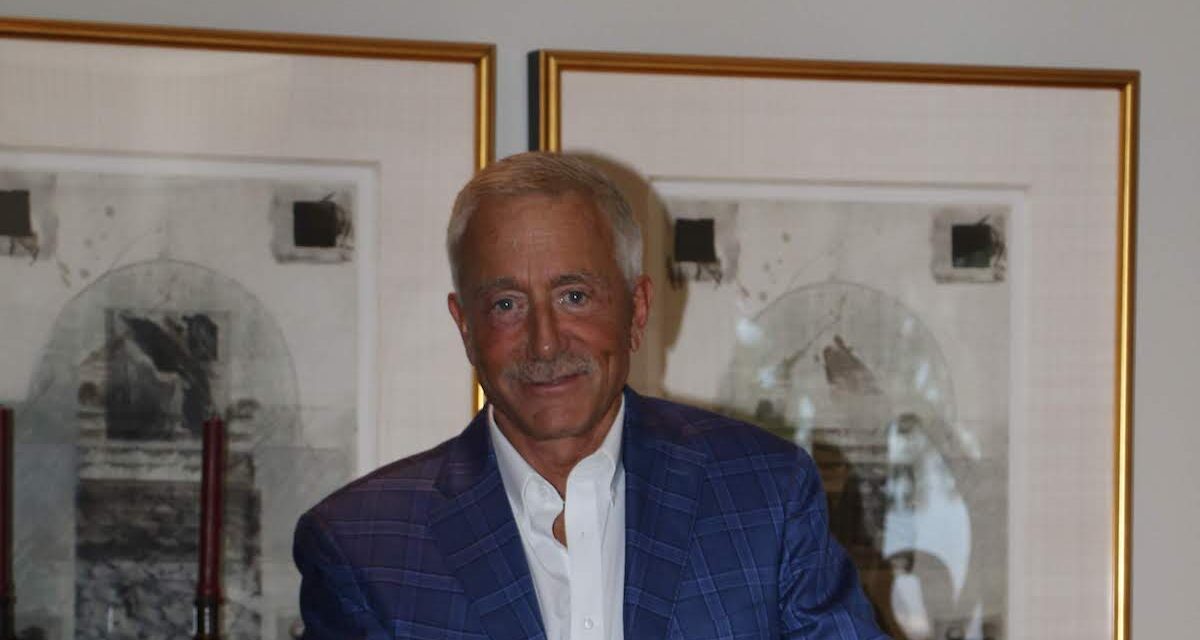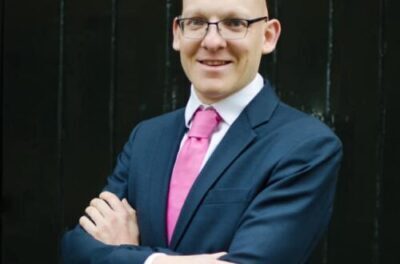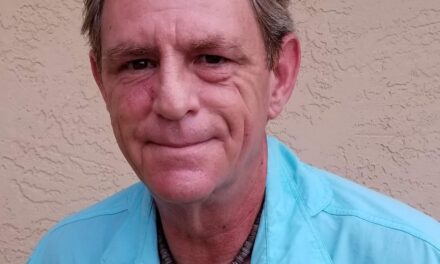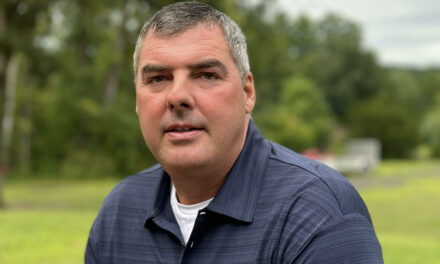Terry Bean serves as the CEO and President of Bean Investment Real Estate in Portland, Oregon. Here, he merges his business acumen with a passion for sustainable investment, aligning his business practices with his values. As a fifth-generation Oregonian, he remains deeply connected to his roots and dedicated to making a positive impact on his community. Bean’s legacy reflects a powerful blend of activism and enterprise, inspiring future generations to continue advancing civil rights and LGBTQ+ equality.
One of Bean’s defining moments came in 1992 when he raised over $1 million to successfully campaign against Oregon’s Measure 9, which aimed to label homosexuality as “abnormal” in the state constitution. This victory solidified his role as a strategic leader and resource mobilizer for progressive causes. His influence has extended through collaborations with leaders like Harvey Milk, earning recognition from figures such as Governor Barbara Roberts for his unwavering commitment to equality and justice.
With a legacy rooted in advocacy and leadership, Terry Bean continues to be a respected figure in both political and business circles. His efforts have not only supported organizations in their formative years but have also left an indelible mark on the LGBTQ+ rights movement, strengthening the foundation for future progress.
Terry, as the CEO of Bean Investment Real Estate, how do you balance your business career with your long-standing activism?
Balancing business and activism has always been a natural extension of who I am. My activism is rooted in a belief that economic empowerment is a key part of equality, and my business is an extension of that philosophy. Through real estate investment, I focus on sustainable and ethical business practices that align with my values. Activism and business are not separate worlds—they intersect in ways that allow me to uplift my community, provide economic opportunities, and reinvest in causes that matter. I see financial stability as a foundation for change, and that’s why I continue to merge both efforts.
Oregon’s Measure 9 was a pivotal moment in your activism. What was the most challenging aspect of that campaign?
The fear and misinformation surrounding Measure 9 made it one of the most challenging fights of my career. The measure sought to write discrimination into the state constitution, labeling LGBTQ+ individuals as “abnormal.” The opposition ran a campaign of fear, using rhetoric that painted LGBTQ+ people as threats to society. We had to counter that with truth, visibility, and a message of equality. Raising over $1 million was no small feat, but we knew it was necessary to defeat such a dangerous initiative. What stood out most was the resilience of our community and allies who refused to back down.
You’ve worked with many influential leaders, including Harvey Milk. What did you learn from those collaborations?
Harvey Milk taught me the importance of visibility and authenticity. He understood that change happens when people see LGBTQ+ individuals in positions of leadership, living openly and without fear. His courage in the face of adversity shaped my approach to activism—he didn’t just fight for policy changes, he fought for a cultural shift in how LGBTQ+ individuals were perceived. Collaborating with figures like Harvey and later receiving recognition from leaders like Governor Barbara Roberts reinforced for me that leadership isn’t just about being in the spotlight; it’s about knowing when to step up and when to empower others.
Your influence extends beyond LGBTQ+ rights into broader political and business circles. What do you believe is the key to making an impact across different fields?
Adaptability and a clear sense of purpose. Whether it’s in politics, business, or activism, the core principle remains the same—work toward meaningful progress. In business, that means investing in projects that contribute to economic and social sustainability. In politics, it means supporting policies and candidates that push society forward. The key is understanding that influence isn’t about personal gain but about creating lasting change. No matter the field, relationships and collaboration are crucial. You need allies, strategic thinking, and an ability to navigate different spaces while staying true to your mission. That’s how real, long-term impact happens.
What has been the most fulfilling moment of your career so far?
There have been many moments that I’m proud of, but the defeat of Measure 9 remains one of the most significant. It wasn’t just about winning a political battle—it was about protecting countless LGBTQ+ individuals from being legally dehumanized. That victory proved the power of collective action and strategic resource mobilization. Beyond that, seeing the Human Rights Campaign and the Gay & Lesbian Victory Fund continue to grow and thrive is fulfilling. Knowing that I played a role in building organizations that will outlast me and continue to fight for justice is something I take immense pride in.
As a fifth-generation Oregonian, how has your home state shaped your activism and business philosophy?
Oregon has always been a place of progressive ideals mixed with deep-rooted traditions, and that duality shaped my approach to both activism and business. Growing up in Oregon, I saw firsthand the power of grassroots movements, especially in environmental and civil rights activism. It taught me that change happens at the local level first. That’s why I’ve always remained invested in my home state—whether it’s fighting for LGBTQ+ rights, supporting political campaigns, or building sustainable business ventures. Oregon has a history of bold leadership, and I strive to carry that tradition forward in everything I do.
Over the years, the landscape of LGBTQ+ rights has changed drastically. What do you see as the biggest challenge facing the movement today?
One of the biggest challenges today is the backlash against the progress we’ve made. We’re seeing legislative attacks on transgender rights, bans on LGBTQ+ discussions in schools, and attempts to roll back protections that we fought decades to secure. There’s a coordinated effort to erase and delegitimize LGBTQ+ identities, and that’s why advocacy is more important than ever. The movement must stay vigilant, particularly in protecting the most vulnerable members of our community. We need to focus on ensuring legal protections are not only secured but also enforced, and we must invest in future generations of leaders to carry the work forward.
Your work in real estate has positioned you as both a business leader and a community advocate. How do you ensure your investments align with your values?
For me, real estate isn’t just about transactions; it’s about community development and responsible investment. I prioritize projects that contribute positively to the city and its residents, whether that means preserving historic properties, supporting affordable housing initiatives, or ensuring sustainable building practices. I also believe in reinvesting in the community—supporting local businesses, advocating for fair housing policies, and ensuring that economic growth benefits everyone, not just a select few. Business should be a tool for good, not just profit, and I approach real estate with that philosophy in mind. My investments must reflect the values I’ve spent my life fighting for.
What advice do you have for young activists and entrepreneurs who want to make a difference?
Stay persistent, build strong networks, and never underestimate the power of storytelling. Activism and entrepreneurship both require resilience—there will always be setbacks, but the key is to learn from them and keep pushing forward. Surround yourself with people who challenge you, support you, and push you to grow. And most importantly, use your voice. Whether you’re advocating for civil rights or launching a business, your story and vision matter. Don’t wait for permission to make an impact. Find your cause, develop a plan, and take action. Change happens when people are bold enough to believe they can create it.
Looking back on your career, what do you hope your legacy will be?
I hope my legacy is one of empowerment and lasting change. I want to be remembered not just for the battles I fought but for the people and organizations I helped uplift along the way. Whether it’s the Human Rights Campaign, the Gay & Lesbian Victory Fund, or the activists and leaders I’ve mentored, I want my contributions to have a ripple effect. Ultimately, I want to be part of a history where equality is no longer something we have to fight for—it’s simply the way the world operates. If I’ve played even a small role in making that happen, I’ll consider my life’s work a success.




